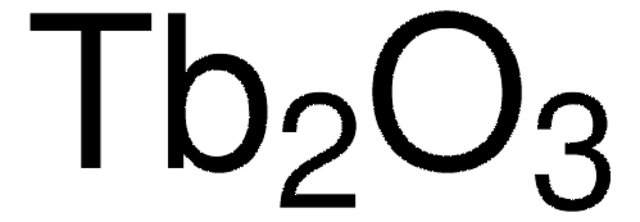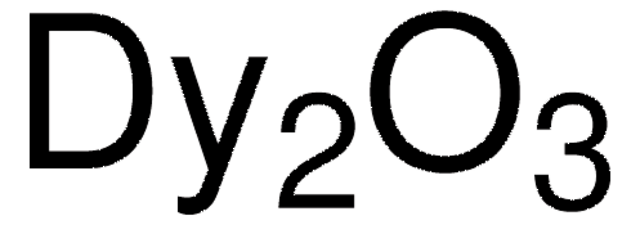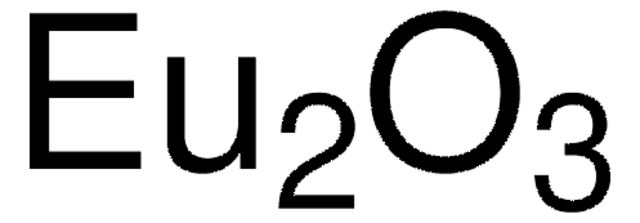204579
Terbium(III,IV) oxide
99.999% trace metals basis
About This Item
Recommended Products
Quality Level
Assay
99.999% trace metals basis
form
powder
reaction suitability
reagent type: catalyst
core: terbium
density
7.3 g/mL at 25 °C (lit.)
SMILES string
O=[Tb]O[Tb](=O)O[Tb](=O)O[Tb]=O
InChI
1S/7O.4Tb
InChI key
UWZVBPNIJCKCMC-UHFFFAOYSA-N
Looking for similar products? Visit Product Comparison Guide
Storage Class Code
11 - Combustible Solids
WGK
WGK 3
Flash Point(F)
Not applicable
Flash Point(C)
Not applicable
Personal Protective Equipment
Regulatory Listings
Regulatory Listings are mainly provided for chemical products. Only limited information can be provided here for non-chemical products. No entry means none of the components are listed. It is the user’s obligation to ensure the safe and legal use of the product.
JAN Code
204579-BULK:
204579-2G:
204579-VAR:
204579-10G:
Choose from one of the most recent versions:
Already Own This Product?
Find documentation for the products that you have recently purchased in the Document Library.
Articles
Spectral conversion for solar cells is an emerging concept in the field of photovoltaics, and it has the potential to increase significantly the efficiency of solar cells. Lanthanide ions are ideal candidates for spectral conversion, due to their high luminescence efficiencies and rich energy level structure that allows for great flexibility in the upconversion and downconversion of photons in a wide spectral region (NIR-VIS-UV).
Rechargeable solid-state batteries are becoming increasingly important due to wide-spread use in computers, portable electronics, and vehicular applications.
Global Trade Item Number
| SKU | GTIN |
|---|---|
| 204579-10G | |
| 204579-2G | 4061838767080 |
Our team of scientists has experience in all areas of research including Life Science, Material Science, Chemical Synthesis, Chromatography, Analytical and many others.
Contact Technical Service







